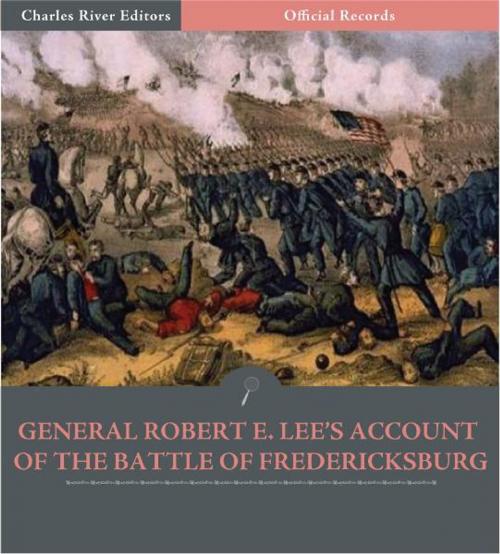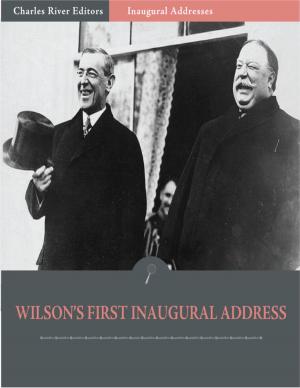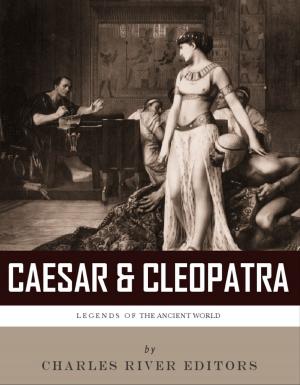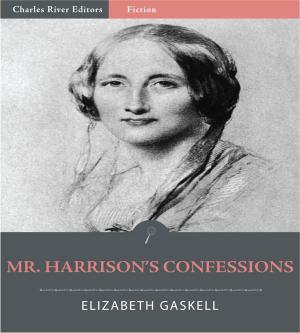Official Records of the Union and Confederate Armies: General Robert E. Lees Account of the Battle of Fredericksburg
Nonfiction, History, Americas, United States, Civil War Period (1850-1877), 19th Century, Military| Author: | Robert E. Lee | ISBN: | 9781619826847 |
| Publisher: | Charles River Editors | Publication: | February 15, 2012 |
| Imprint: | Language: | English |
| Author: | Robert E. Lee |
| ISBN: | 9781619826847 |
| Publisher: | Charles River Editors |
| Publication: | February 15, 2012 |
| Imprint: | |
| Language: | English |
With the exception of George Washington, perhaps the most famous and celebrated general in American history is Robert E. Lee (January 19, 1807 October 12, 1870), despite the fact he led the Confederate Army of Northern Virginia against the Union in the Civil War. The son of U.S. Revolutionary War hero Henry "Light Horse Harry" Lee III, a relative of Martha Custis Washington, and a top graduate of West Point, Lee had distinguished himself so well before the Civil War that President Lincoln asked him to command the entire Union Army. Lee famously declined, serving his home state of Virginia instead after it seceded. Lee constantly defeated the Unions Army of the Potomac in the Eastern theater from 1862-1865, considerably frustrating Lincoln and his generals. His leadership of his army led to him being deified after the war by some of his former subordinates, especially Virginians, and he came to personify the Lost Causes ideal Southern soldier. Of all the battles Lee fought in, he was most criticized for Gettysburg, particularly his order of Picketts Charge on the third and final day of the war. Despite the fact his principle subordinate and corps leader, General James Longstreet, advised against the charge, Lee went ahead with it, ending the armys defeat at Gettysburg with a violent climax that left half of the men who charged killed or wounded. Naturally, as leader of the army, Lee wrote dispatches and reports, and many were preserved in The War of the Rebellion: Official Records of the Union and Confederate Armies. Since Lee died in 1870 before writing memoirs, his only primary accounts of the war come from his commands and postwar reports, preserved in the Official Records. In early 1863, just before Chancellorsville, Lee wrote a detailed account of the Battle of Fredericksburg that became part of the Official Records. This edition includes pictures of the important military commanders at the battle.
With the exception of George Washington, perhaps the most famous and celebrated general in American history is Robert E. Lee (January 19, 1807 October 12, 1870), despite the fact he led the Confederate Army of Northern Virginia against the Union in the Civil War. The son of U.S. Revolutionary War hero Henry "Light Horse Harry" Lee III, a relative of Martha Custis Washington, and a top graduate of West Point, Lee had distinguished himself so well before the Civil War that President Lincoln asked him to command the entire Union Army. Lee famously declined, serving his home state of Virginia instead after it seceded. Lee constantly defeated the Unions Army of the Potomac in the Eastern theater from 1862-1865, considerably frustrating Lincoln and his generals. His leadership of his army led to him being deified after the war by some of his former subordinates, especially Virginians, and he came to personify the Lost Causes ideal Southern soldier. Of all the battles Lee fought in, he was most criticized for Gettysburg, particularly his order of Picketts Charge on the third and final day of the war. Despite the fact his principle subordinate and corps leader, General James Longstreet, advised against the charge, Lee went ahead with it, ending the armys defeat at Gettysburg with a violent climax that left half of the men who charged killed or wounded. Naturally, as leader of the army, Lee wrote dispatches and reports, and many were preserved in The War of the Rebellion: Official Records of the Union and Confederate Armies. Since Lee died in 1870 before writing memoirs, his only primary accounts of the war come from his commands and postwar reports, preserved in the Official Records. In early 1863, just before Chancellorsville, Lee wrote a detailed account of the Battle of Fredericksburg that became part of the Official Records. This edition includes pictures of the important military commanders at the battle.















